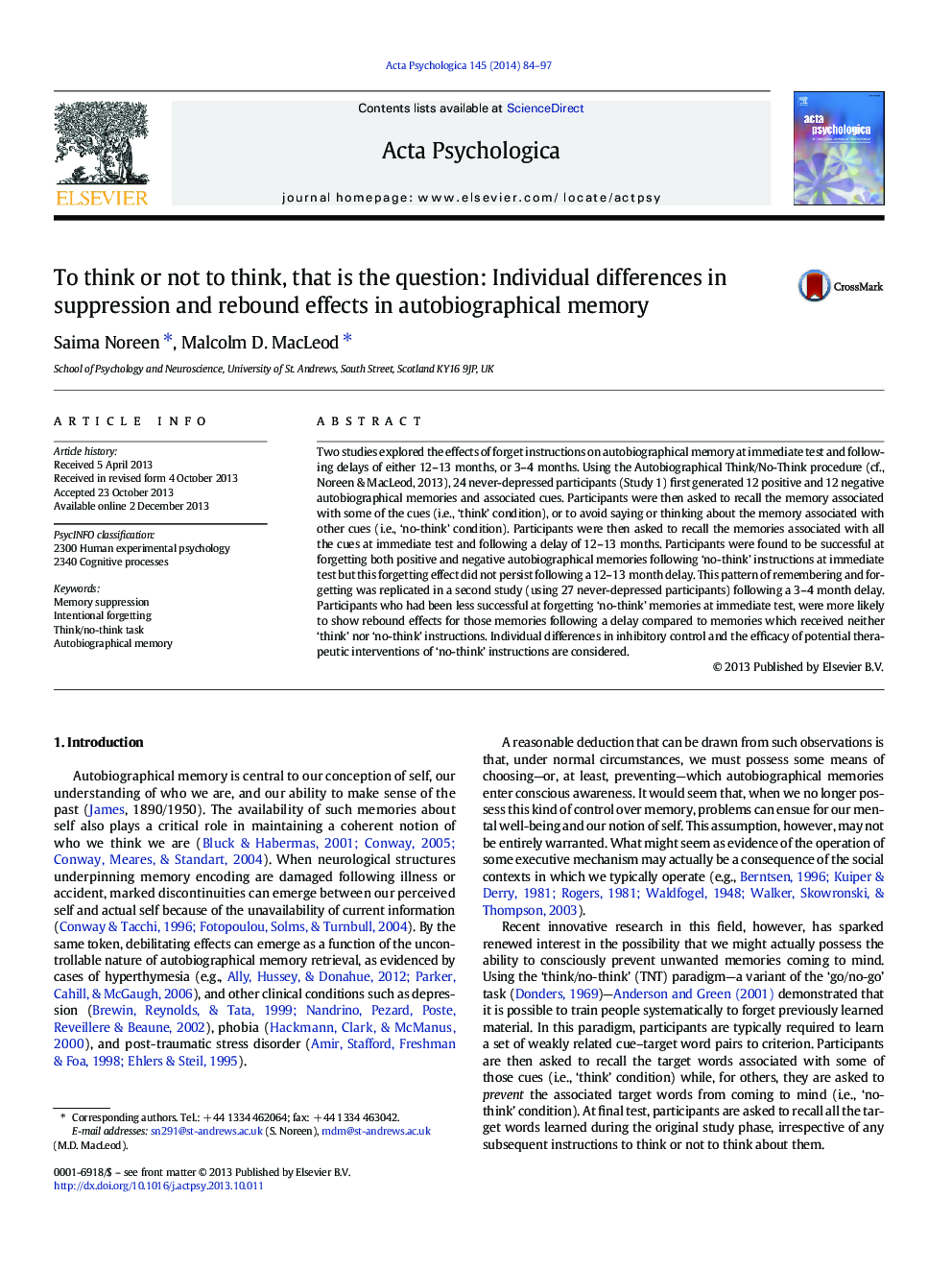| Article ID | Journal | Published Year | Pages | File Type |
|---|---|---|---|---|
| 919848 | Acta Psychologica | 2014 | 14 Pages |
•Established that suppression effects are possible for autobiographical memories•Both positive and negative memories were forgotten at immediate test.•No forgetting of ‘no-think’ memories at delay•Poor suppressors at immediate test showed rebound effects at delay.
Two studies explored the effects of forget instructions on autobiographical memory at immediate test and following delays of either 12–13 months, or 3–4 months. Using the Autobiographical Think/No-Think procedure (cf., Noreen & MacLeod, 2013), 24 never-depressed participants (Study 1) first generated 12 positive and 12 negative autobiographical memories and associated cues. Participants were then asked to recall the memory associated with some of the cues (i.e., ‘think’ condition), or to avoid saying or thinking about the memory associated with other cues (i.e., ‘no-think’ condition). Participants were then asked to recall the memories associated with all the cues at immediate test and following a delay of 12–13 months. Participants were found to be successful at forgetting both positive and negative autobiographical memories following ‘no-think’ instructions at immediate test but this forgetting effect did not persist following a 12–13 month delay. This pattern of remembering and forgetting was replicated in a second study (using 27 never-depressed participants) following a 3–4 month delay. Participants who had been less successful at forgetting ‘no-think’ memories at immediate test, were more likely to show rebound effects for those memories following a delay compared to memories which received neither ‘think’ nor ‘no-think’ instructions. Individual differences in inhibitory control and the efficacy of potential therapeutic interventions of ‘no-think’ instructions are considered.
